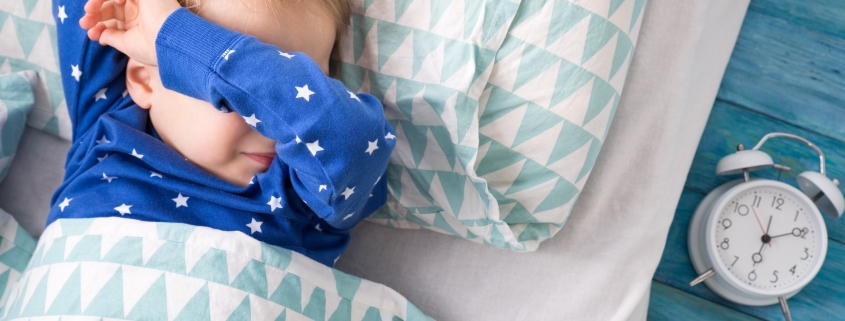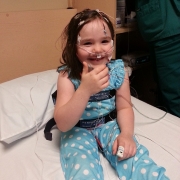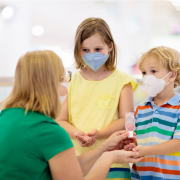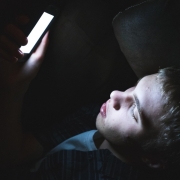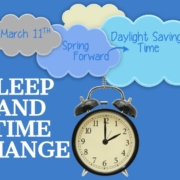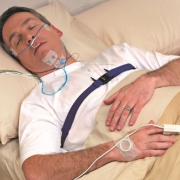Pediatric Sleep Disorders
PEDIATRIC SLEEP DISORDERS
Up to 30% of children today have some type of sleep disorder. Pediatric sleep disorders can lead to tired and cranky children, but also to a number of behavioral problems at home, in school, and in their social lives as well.
SYMPTOMS
Signs and symptoms of sleep disorders in children might include:
- Impulsiveness
- Irritability
- Difficulty focusing/concentrating
- Hyperactivity
- Snoring /gasping, pauses in breathing
- Restless sleep
- Nightmares / night terrors
- Sleepwalking
- Snorting, coughing or choking
- Mouth breathing
- Bed wetting (over the age of 5)
- Unexplained decrease in daytime performance
- Obesity
- Grinding teeth during sleep
- Trouble falling asleep due to leg discomfort
Infants and young children with obstructive sleep apnea don’t always snore. They might just have disturbed sleep.
Children who have sleep disorders may often exhibit symptoms (inattentiveness, over-activity, restlessness) similar to ADHD. Studies have suggested that as many as 25 percent of children diagnosed with attention-deficit hyperactivity disorder (ADHD) may actually have symptoms of obstructive sleep apnea and that much of their learning difficulty and behavior problems can be the consequence of chronic fragmented sleep. Bed-wetting, sleep-walking, retarded growth, other hormonal and metabolic problems, even failure to thrive can be related to a sleep disorder. Several recent studies show a strong association between pediatric sleep disorders and childhood obesity. Children exhibiting these symptoms or other behavioral problems should be carefully assessed by a pediatric sleep medicine specialist to assess their sleep problems.
American Acedemy of Pediatrics Guidelines
The American Academy of Pediatrics (AAP) guideline recommends that children who frequently snore should be tested for obstructive sleep apnea. The clinical practice guideline “Diagnosis and Management of Childhood Obstructive Sleep Apnea” was published in the September 2012 issue of Pediatrics. The guideline recommends in-lab polysomnography for children with daytime learning problems, labored breathing during sleep and disturbed sleep with frequent gasps, snorts or pauses. The guidelines also call for children and adolescents to be screened for snoring as part of routine physician visits. The AAP recommends adenotonsillectomy as the first-line treatment for children with sleep apnea. Pediatricians may also recommend weight loss in obese patients or CPAP if surgery is ineffective or not conducted.
Causes
There are differences between pediatric obstructive sleep apnea and adult sleep apnea. While adults usually have daytime sleepiness, children are more likely to have behavioral problems. The underlying cause in adults is often obesity, while in children the most common underlying condition is enlargement of the adenoids and tonsils. However, obesity also plays a role in children. Other underlying factors can be craniofacial anomalies and neuromuscular disorders. Early diagnosis and treatment are important to prevent complications that can affect children’s growth, cognitive development and behavior.
DURING THE DAY, CHILDREN WITH SLEEP DISORDERS MIGHT:
- Perform poorly in school
- Have difficulty paying attention
- Have learning problems
- Have behavioral problems
- Have poor weight gain
- Be hyperactive
MAKING A DIAGNOSIS
As in adults, a polysomnography (sleep study) is the only tool for a definitive diagnosis and assessment of the severity of pediatric obstructive sleep apnea. It needs to be conducted during an overnight stay in a sleep lab, with the test conducted by technologists experienced in working with children and the data interpreted by a sleep medicine physician with pediatric experience. In addition, since children’s sleep apnea is frequently most pronounced during REM sleep late in the sleep cycle, home sleep studies and daytime nap studies are not useful and can be misleading.
FINDING A SPECIALIST
Comprehensive Sleep Care Center offers expert diagnosis, treatment, and care for pediatric sleep disorders for children from the age of 2 months and up with the goal of providing a better night’s sleep and a better day ahead for the entire family.
If you suspect your child might have a sleep disorder, contact our physicians at Comprehensive Sleep Care Center. We have a team of pediatric sleep medicine specialists on staff and ready to help.

